Trivia Browser
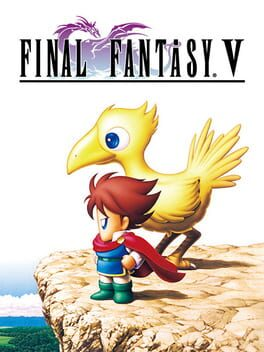
▲
5
▼
 The translation group RPGe's 1998 English translation of Final Fantasy V is considered to be one of the most widely-played and influential fan translations in video game history. It gained this reputation because it released before Squaresoft's first official translation in Final Fantasy Anthology in late 1999, and despite RPGe primarily consisting of inexperienced teenagers, it was regarded as a better translation than the official one, leading many Western players to first experience the game through it.
The translation group RPGe's 1998 English translation of Final Fantasy V is considered to be one of the most widely-played and influential fan translations in video game history. It gained this reputation because it released before Squaresoft's first official translation in Final Fantasy Anthology in late 1999, and despite RPGe primarily consisting of inexperienced teenagers, it was regarded as a better translation than the official one, leading many Western players to first experience the game through it.The first translation attempts stemmed from widespread confusion over Squaresoft not releasing three FF games in the West: Final Fantasy II, Final Fantasy III, and FFV. Their decision to release Final Fantasy VII internationally under its original numbering after Final Fantasy VI was released in the West a few years earlier as the "third" game in the series also contributed to this.
The co-creator of RPGe, named Shadow, was inspired by an incomplete FFII translation by users Demi and Som2freak (the latter having later lent Shadow tools to work on FFV), and started translating FFV by making flashcards for which hex code corresponded to each Japanese and English character in the game's data. He promoted his efforts online using photoshopped FFV images and recruited other users to create RPGe, including translator David Timko, and a computer engineering major named Hooie who also asked Japanese instructors at his university to help translate some enemy names. RPGe's plan was to directly edit their English script into the text files of a ROM of the Japanese version, but their work was slow and tedious due to them having little experience with fan translations and being out of touch with fledgling emulation communities. This lead to technical issues with their text and sprite editing software, and English characters being poorly displayed under conditions that were originally designed for larger Japanese characters. The group also suffered from internal factionalism, and since Shadow promoted himself as the public face of the project, he found that he could not handle the attention and controversy that came from how seriously he took the project and RPGe itself, seeing the translation effort as a vital service to the Squaresoft fan community. After Demi published a lengthy post parodying Shadow, he "snapped" and left RPGe. The co-founders of RPGe would also eventually step down, but other users would take over and start their own work.
A user named Myria, who had argued against RPGe's hex editing approach to no avail, split off from their efforts beforehand to work on a separate translation. Sharing similar setbacks to them, she gradually parsed through the code used to handle the text files, and edited it so it could recognize English characters of different sizes and fit more in a dialogue box. Som2freak helped translate the script for a time, but then left the project after bringing on a new editor, named harmony7, who started heavily revising Som2freak's translations to his chagrin despite seeing several issues with it.
One of the most controversial aspects of the translation was the main character's name. Squaresoft's later English translation named him "Bartz", but RPGe's translation named him "Butz", which many joked sounds like "butts". Myria claimed that Butz was the most accurate translation based on documents and official merchandise using it "the way we'd written it" (for reference, the Romanized version of the Japanese name "バッツ" comes out as "Battsu"). However, Butz is used in real life as an actual German surname with a different pronunciation, the vowel being an "oe" sound like in the English words "put" and "good". Therefore, Bartz would make more sense to match up with the vowels in the Japanese name than Butz, and also fits better as a German first name since Bartz is a pet name for Bartholomäus (Bartholomew).
The bulk of Myria's technical work ended in October 1997, with harmony7 still working to revise the entire script until something unexpected happened. An early version of the fan translation mysteriously appeared on a Geocities website with others taking credit for it. This prompted RPGe to release their work up to that point as "v0.96" on October 17, 1997, with the final patch eventually being released in June 1998. The translation patch received acclaim for its technical aspects and near-professional writing quality, and influenced other players to become translators, including Clyde Mandelin who would later create the English fan translation for Mother 3. Squaresoft never contacted RPGe about the translation, and while their 1999 localization of the game was seen as inferior to RPGe's, Myria would later opine that Square Enix's 2006 localization in Final Fantasy V: Advance was better than theirs. Myria continued hacking and reverse-engineering games and eventually earned a job at an undisclosed major video game company.
2017 Kotaku article:
https://web.archive.org/web/20170428183534/https://kotaku.com/how-three-kids-beat-the-odds-and-translated-final-fanta-1794628286
2021 IGN article:
https://web.archive.org/web/20210508152802/https://www.ign.com/articles/the-untold-drama-and-history-behind-final-fantasy-5s-fan-translation
Butz surname pronunciation:
https://en.wiktionary.org/wiki/Butz#Pronunciation_2
Bartz pet name source from Ancestry.com:
https://www.ancestry.com/name-origin?surname=bartz
Final Fantasy Chrome Figure Collection wiki articles:
https://finalfantasy.fandom.com/wiki/Final_Fantasy_Chrome_Figure_Collection
https://ffmerchandise.fandom.com/wiki/Final_Fantasy_Chrome_Figures_Collection
Ebay listing for Final Fantasy Chrome Figure set including Butz:
https://www.ebay.com/itm/275540207811
https://web.archive.org/web/20170428183534/https://kotaku.com/how-three-kids-beat-the-odds-and-translated-final-fanta-1794628286
2021 IGN article:
https://web.archive.org/web/20210508152802/https://www.ign.com/articles/the-untold-drama-and-history-behind-final-fantasy-5s-fan-translation
Butz surname pronunciation:
https://en.wiktionary.org/wiki/Butz#Pronunciation_2
Bartz pet name source from Ancestry.com:
https://www.ancestry.com/name-origin?surname=bartz
Final Fantasy Chrome Figure Collection wiki articles:
https://finalfantasy.fandom.com/wiki/Final_Fantasy_Chrome_Figure_Collection
https://ffmerchandise.fandom.com/wiki/Final_Fantasy_Chrome_Figures_Collection
Ebay listing for Final Fantasy Chrome Figure set including Butz:
https://www.ebay.com/itm/275540207811
Company: Rare
▲
4
▼
 Contrary to popular belief, Rare's name was never "Rareware", even before the Microsoft buyout in 2002. On an old Rare Scribes post dated June 19, 2000, it was confirmed that the name "Rareware" refers to the company's products, not the company itself. It's essentially a portmanteau of "Rare" and "Software". The company itself was always internally named Rare Limited.
Contrary to popular belief, Rare's name was never "Rareware", even before the Microsoft buyout in 2002. On an old Rare Scribes post dated June 19, 2000, it was confirmed that the name "Rareware" refers to the company's products, not the company itself. It's essentially a portmanteau of "Rare" and "Software". The company itself was always internally named Rare Limited.
Rare Scribes - June 19, 2020:
https://rarewhere.neocities.org/1998_2000/june1900
Example of official Nintendo website referring to them as Rare Ltd. (Banjo-Tooie game page):
https://web.archive.org/web/20020204040759/http://www.nintendo.com/games/gamepage/gamepage_main.jsp?gameId=53
https://rarewhere.neocities.org/1998_2000/june1900
Example of official Nintendo website referring to them as Rare Ltd. (Banjo-Tooie game page):
https://web.archive.org/web/20020204040759/http://www.nintendo.com/games/gamepage/gamepage_main.jsp?gameId=53

▲
3
▼
The character Ultros from Final Fantasy VI’s Japanese name is pronounced as “ortorosu” and was intended to be a reference to Orthos from Greek mythology. When the game was localized, the translator was presumably unaware of this reference and transliterated it as Ultros. Later entries in the series would alternate between calling the character Ultros and Orthos.

subdirectory_arrow_right The Legend of Zelda: The Wind Waker (Game), The Legend of Zelda: Twilight Princess (Game), The Legend of Zelda: A Link to the Past & Four Swords (Game), The Legend of Zelda: Twilight Princess (Game), The Legend of Zelda (Franchise)
▲
2
▼
The Master Sword was named after King Arthur's legendary sword "Excalibur" in the French version of The Legend of Zelda: A Link to the Past. The name Excalibur would also be used in the French versions of The Legend of Zelda: The Wind Waker and The Legend of Zelda: Twilight Princess.
The Legend of Zelda: A Link to the Past - "Excalibur retrouvera, préservant la pureté de la lignée des Chevaliers.":
https://www.youtube.com/watch?v=5saXnUkPzMY
The Legend of Zelda: The Wind Waker - "Vous obtenez Excalibur! Excalibur est l'Epée Légendaire du Héros du Temps, qui a le pouvoir de repousser le mal.":
https://www.youtube.com/watch?v=qI2ArNpV6Ag#t=2146
The Legend of Zelda: Twilight Princess - "En cet endroit secret repose Excalibur, l'épée pourfendeuse du mal forgée par les sages des temps anciens.":
https://www.youtube.com/watch?v=dgXIupUStTo#t=1483
https://www.youtube.com/watch?v=5saXnUkPzMY
The Legend of Zelda: The Wind Waker - "Vous obtenez Excalibur! Excalibur est l'Epée Légendaire du Héros du Temps, qui a le pouvoir de repousser le mal.":
https://www.youtube.com/watch?v=qI2ArNpV6Ag#t=2146
The Legend of Zelda: Twilight Princess - "En cet endroit secret repose Excalibur, l'épée pourfendeuse du mal forgée par les sages des temps anciens.":
https://www.youtube.com/watch?v=dgXIupUStTo#t=1483
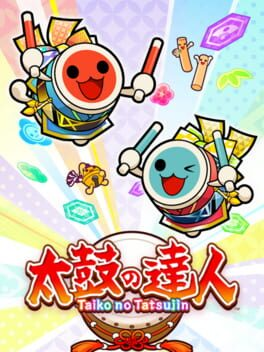
▲
2
▼
On April Fools Day, 2021, Taiko no Tatsujin's Twitter Account posted a QR Code, along with a foreboding conversation between Don-Chan and Ka-Chan. By scanning this QR Code on a compatible Arcade Cabinet, the unique song "彁" (pronounced "Ka") by composer LeaF is unlocked. A harder Hidden Oni difficulty was distributed via QR Code the next year on the same day. The song is notable for a few reasons:
• "彁" is currently the only song in the game that is unlocked through scanning a QR Code; all other Codes provide cosmetic options for Don-Chan. Likewise, the song is added to a genre folder separate from the rest of the game's music, labeled as "Hidden Data", with the subtitle translating to "That's No Good".
• The name of the song technically does not exist. "彁" is a "Ghost Character", a character that exists in Unicode, but does not anywhere else. While other Ghost Characters have some sort of explanation for their existence, "彁" has no definitive source. Its pronounciation of "Ka" was provided by LeaF herself, as the character otherwise has none.
• Upon selecting the song's Hidden Oni chart, a unique transition effect plays with glitchy effects. No other song in the game has a unique animation for going from Oni to Hidden Oni difficulty.
• The Hidden Oni Chart is considered one of the hardest songs in the series. This is attributed to a heavy utilization of multiple scrolling speeds and polyrhythmic patterns. Only one individual is known to have full comboed it when it first debuted.
• "彁" is currently the only song in the game that is unlocked through scanning a QR Code; all other Codes provide cosmetic options for Don-Chan. Likewise, the song is added to a genre folder separate from the rest of the game's music, labeled as "Hidden Data", with the subtitle translating to "That's No Good".
• The name of the song technically does not exist. "彁" is a "Ghost Character", a character that exists in Unicode, but does not anywhere else. While other Ghost Characters have some sort of explanation for their existence, "彁" has no definitive source. Its pronounciation of "Ka" was provided by LeaF herself, as the character otherwise has none.
• Upon selecting the song's Hidden Oni chart, a unique transition effect plays with glitchy effects. No other song in the game has a unique animation for going from Oni to Hidden Oni difficulty.
• The Hidden Oni Chart is considered one of the hardest songs in the series. This is attributed to a heavy utilization of multiple scrolling speeds and polyrhythmic patterns. Only one individual is known to have full comboed it when it first debuted.
YouTube video explaining the song:
https://www.youtube.com/watch?v=Ky73qsfqYes
Article on April Fools 2021:
https://taikotime.blogspot.com/2021/04/acn-quality-romp-down-april-rabbit-hole.html
Article on April Fools 2022:
https://taikotime.blogspot.com/2022/04/taiko-no-tatsujin-fools-in-april-2022.html
https://www.youtube.com/watch?v=Ky73qsfqYes
Article on April Fools 2021:
https://taikotime.blogspot.com/2021/04/acn-quality-romp-down-april-rabbit-hole.html
Article on April Fools 2022:
https://taikotime.blogspot.com/2022/04/taiko-no-tatsujin-fools-in-april-2022.html
Collection: Bubsy
▲
2
▼
The name "Bubsy" originated from series creator Michael Berlyn's brother-in-law, who would refer to "rounded, bouncy, happy things" such as Volkswagen Beetles with the nonsense adjective "bubsy".

▲
2
▼
 One of Star Fox Command's new characters is Dash Bowman, the grandson of Andross who, ironically enough, is a pilot in the Cornerian Defense Force and also an admirer of the Star Fox team.
One of Star Fox Command's new characters is Dash Bowman, the grandson of Andross who, ironically enough, is a pilot in the Cornerian Defense Force and also an admirer of the Star Fox team. In the Japanese version of the game, his first name is アッシュ (Asshu), or Ash, which is more in line with the naming conventions of his relatives, Andross and Andrew Oikonny, whose names also start with "A". It's possible that his surname, Bowman, is a reference to the character of David Bowman, the protagonist of the film "2001: A Space Odyssey", though this is unconfirmed.

subdirectory_arrow_right Star Fox (Franchise)
▲
2
▼
 In Japan, Pigma Dengar's name is ピグマ・デンガー (Piguma Dengā).
In Japan, Pigma Dengar's name is ピグマ・デンガー (Piguma Dengā).His surname seems to come from the Kansai expression, デンガナマンガナー (Denganamanganā). In the Japanese version of Star Fox games, Pigma tends to speak in Kansai dialect like people from Osaka. In Japan, people from this region are characterized as rude, bad-mannered, and even criminal lowlifes, very befitting of Pigma.
It is worth pointing out, however, that this is considered an offensive stereotype of Kansai people, and they do not enjoy being characterized this way in Japanese media.
Star Fox character name origins Reddit thread:
https://www.reddit.com/r/starfox/comments/11pogfk/the_untold_origins_of_star_fox_names_oikonny_kew/
Japanese video on Pigma Dengar origins:
https://www.youtube.com/watch?v=FLtDilxoXaY
Kansai dialect discrimination article:
https://anond.hatelabo.jp/20201228141845
https://www.reddit.com/r/starfox/comments/11pogfk/the_untold_origins_of_star_fox_names_oikonny_kew/
Japanese video on Pigma Dengar origins:
https://www.youtube.com/watch?v=FLtDilxoXaY
Kansai dialect discrimination article:
https://anond.hatelabo.jp/20201228141845

subdirectory_arrow_right Beatmania IIDX 27 Heroic Verse (Game)
▲
2
▼
The song "SOFT LANDING ON THE BODY" features a section in which the BPM doubles from 159 to 318 for seemingly no reason. According to composer Kiyotaka Sugimoto, this was due to an engine bug created by the song going to a 7/8 time signature, and the glitch was kept in when the game released. In honor of this mistake, any sudden large BPM changes or gimmicks have earned the nickname "Soflan" by BEMANI fans (a portmanteau of "Soft" and "Landing"). The "Soflan" moniker became canon to the series when beatmaniaIIDX 27 Heroic Verse included it as part of its Notes Radar parameters, signifying the quantity of BPM changes and their severity.
RemyWiki Page for SOFT LANDING ON THE BODY:
https://remywiki.com/SOFT_LANDING_ON_THE_BODY
Gameplay of SOFT LANDING ON THE BODY:
https://www.youtube.com/watch?v=1Z60nSrGiJ4
https://remywiki.com/SOFT_LANDING_ON_THE_BODY
Gameplay of SOFT LANDING ON THE BODY:
https://www.youtube.com/watch?v=1Z60nSrGiJ4

subdirectory_arrow_right Digital Devil Story: Megami Tensei (Game)
▲
2
▼
The Myconid is a race of intelligent fungus creatures appearing in Digital Devil Story: Megami Tensei. This is notable as while the concept of mushroom creatures is well known in pop culture, the specific term “Myconid” was specifically invented for the fantasy tabletop role playing game Dungeons & Dragons.
Myconid in Digital Devil Story: Megami Tensei:
https://www.youtube.com/watch?v=pzul2qUbwgQ#t=6603
Wiki page on Myconid:
https://megamitensei.fandom.com/wiki/Myconid
https://www.youtube.com/watch?v=pzul2qUbwgQ#t=6603
Wiki page on Myconid:
https://megamitensei.fandom.com/wiki/Myconid

subdirectory_arrow_right Star Fox 64 3D (Game)
▲
2
▼
 One of the more enigmatic characters in Star Fox 64 is the tanuki or raccoon dog that only appears in its training mode. On the official Japanese Star Fox 64 website, Slippy reveals that his name is ヤル・デ・ポン (Yaru De Pon), and that he is the president of Space Dynamics, the manufacturers of the Arwing and other vehicles the Star Fox team utilizes in their missions.
One of the more enigmatic characters in Star Fox 64 is the tanuki or raccoon dog that only appears in its training mode. On the official Japanese Star Fox 64 website, Slippy reveals that his name is ヤル・デ・ポン (Yaru De Pon), and that he is the president of Space Dynamics, the manufacturers of the Arwing and other vehicles the Star Fox team utilizes in their missions. His surname seems to reference the du Pont family (ポン spells both "Pon" and "Pont"), a wealthy American family who made their fortune selling gunpowder, and later chemicals and motor vehicles. A popular rumor is that Henry A. du Pont secretly sold gunpowder to the Confederacy during the Civil War; fittingly enough, Slippy implies that Yaru de Pon is involved in "shady weapon deals", suggesting that he might be supplying Andross' forces as well.
Yaru de Pon is also notably the only character in the original Star Fox 64 to not have any voice acting. This was addressed in its 3DS remake, Star Fox 64 3D, where he is now properly voiced by Jay Ward (who also voices Wolf O'Donnell in Super Smash Bros. Brawl and Super Smash Bros. Ultimate, as well as the Nintendo Switch version of Starlink: Battle for Atlas) in the English version, and Kunpei Sakamoto in the Japanese version.
Star Fox 64 official Japanese character bios:
https://www.nintendo.co.jp/n01/n64/software/nus_p_nfxj/member/index2.html#frog
Star Fox character name origins Reddit thread:
https://www.reddit.com/r/starfox/comments/11pogfk/the_untold_origins_of_star_fox_names_oikonny_kew/
Star Fox 64 3D voice cast:
https://www.behindthevoiceactors.com/video-games/Star-Fox-64-3D/
https://www.nintendo.co.jp/n01/n64/software/nus_p_nfxj/member/index2.html#frog
Star Fox character name origins Reddit thread:
https://www.reddit.com/r/starfox/comments/11pogfk/the_untold_origins_of_star_fox_names_oikonny_kew/
Star Fox 64 3D voice cast:
https://www.behindthevoiceactors.com/video-games/Star-Fox-64-3D/

subdirectory_arrow_right Star Fox (Franchise)
▲
2
▼
In Japan, Andrew Oikonny's name is アンドリュー・オイッコニー (Andoryū Oikkonī).
His surname seems to be a pun on the Japanese word for nephew, 甥っ子 (Oi-kko). Obviously this is a pun/reference to the fact that Andross is canonically Andrew's uncle.
His surname seems to be a pun on the Japanese word for nephew, 甥っ子 (Oi-kko). Obviously this is a pun/reference to the fact that Andross is canonically Andrew's uncle.

▲
2
▼
 In Japan, Slippy Toad's father, Beltino, is called ベルツィーノ(Berutsīno) which comes from ベルツノガエル (Berutsunogaeru), meaning Bert's frog or Belted frog. This is also the Japanese name for the Argentine horned frog, better known as a Pacman frog. Funny enough, after being alluded to on the Japanese Star Fox 64 website, Beltino would go on to have a major role in Star Fox: Assault, which was developed by Namco, the creators of Pac-Man.
In Japan, Slippy Toad's father, Beltino, is called ベルツィーノ(Berutsīno) which comes from ベルツノガエル (Berutsunogaeru), meaning Bert's frog or Belted frog. This is also the Japanese name for the Argentine horned frog, better known as a Pacman frog. Funny enough, after being alluded to on the Japanese Star Fox 64 website, Beltino would go on to have a major role in Star Fox: Assault, which was developed by Namco, the creators of Pac-Man.

▲
2
▼
"Spelunker taishitsu" (Eng: Constitution of a spelunker) is a Japanese idiom referring to someone who is easily injured, commonly used in sports. This originates from Spelunker, which is widely popular in Japan as a "kusoge" (Japanese for "crappy game") specifically for the protagonist's frail nature and sometimes ridiculous death conditions.
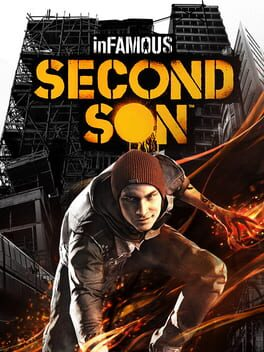
▲
2
▼
There is a Vietnamese noodle shop in the game called inPhởmous. This is a fun play on the words for the Vietnamese noodle dish of Phở and the title of the game.

▲
2
▼
According to character designer Gregg Mayles on Twitter, after the announcement that King K. Rool would be in Super Smash Bros. Ultimate, a character that Gregg had named and designed the actions of, he revealed that the character was original called "KOMMANDER K. ROOL" and that Donkey Kong Country was originally to be called MONKEY MAYHEM. He also mentioned that the "K." in K. Rool does not actually stand for anything and the name itself is only intended to be a play on the word "cruel", though he joked that the initial could stand for something mundane and off-character, such as "Keith".
In addition, Gregg's brother Steve, who designed the look and visual design for the character, also revealed that the programmers thought King K. Rool was "too big" and too taxing on the game's memory, and thus several frames of the character's animation had to be dropped as a result.
In addition, Gregg's brother Steve, who designed the look and visual design for the character, also revealed that the programmers thought King K. Rool was "too big" and too taxing on the game's memory, and thus several frames of the character's animation had to be dropped as a result.
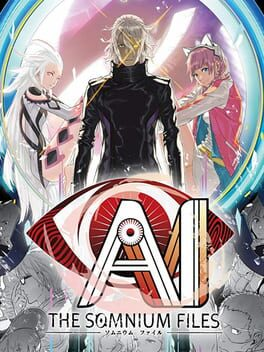
▲
1
▼
Two of the game's core themes are eyes and different types and expressions of love. This is reflected in the game's title, AI: the word itself is pronounced "eye", and is derived from "ai" (愛), the Japanese word for love. The title also has additional meanings, namely how it's pronounced similar to the English word "I", and how the title is short for "artificial intelligence". Additionally, the word "somnium" in the game's subtitle is taken from the Latin word for "dream", in reference to how the game's plot involves entering dreams in order to solve cases.
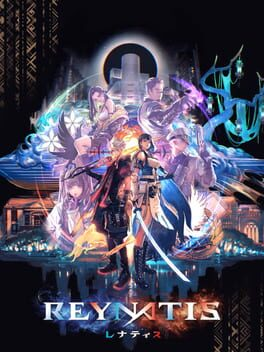
▲
1
▼
In an interview with the game's director Takumi Isobe published in Famitsu on February 22, 2024, Isobe explained that the game's title "Reynatis" holds deep significance to the game's story and is derived from two words. The first is "renatus", which means "birth" or "rebirth" in Latin. The second word is "rey" which means "king" in Spanish; additionally, "renatus" on its own can also refer to a "born king" in Spanish.
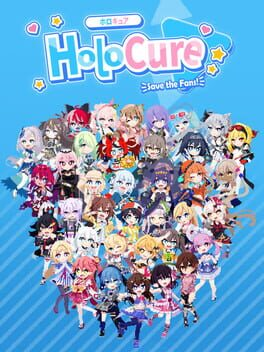
▲
1
▼
The "X-Potato" weapon is a reference to one of Inugami Korone's livestreams of Blasphemous, in which she accidentally mispronounces the name Exposito while looking up boss names up after beating the game. It is unlocked by surviving 10 minutes while playing as Korone in a run. Its available Collabs (fusions between two weapons) are also references to Korone:
• Rap Dog (combined with Idol Song): Alludes to Korone's ability to rap, most prominently shown off when she and Nekomata Okayu sang "if..." by DA PUMP.
• MiKorone (combined with Elite Lava Bucket): A portmanteau of Inugami Korone and Sakura Miko's names, a term for streams featuring the two collaborating together.
• I'm Die, Thank You Forever (combined with Holo Bomb): References a collaboration between her and Mori Calliope played Keep Talking And Nobody Explodes, each using their non-native language (English for Korone and Japanese for Calliope). During one attempt, Korone, realizing she couldn't diffuse the bomb in time, uttered "Ah, I'm die, thank you forever" before exploding.
• Rap Dog (combined with Idol Song): Alludes to Korone's ability to rap, most prominently shown off when she and Nekomata Okayu sang "if..." by DA PUMP.
• MiKorone (combined with Elite Lava Bucket): A portmanteau of Inugami Korone and Sakura Miko's names, a term for streams featuring the two collaborating together.
• I'm Die, Thank You Forever (combined with Holo Bomb): References a collaboration between her and Mori Calliope played Keep Talking And Nobody Explodes, each using their non-native language (English for Korone and Japanese for Calliope). During one attempt, Korone, realizing she couldn't diffuse the bomb in time, uttered "Ah, I'm die, thank you forever" before exploding.
Hololive Wiki Page on X-Potato:
https://holocure.fandom.com/wiki/X-Potato
Origin of the X-Potato meme:
https://youtu.be/5FIqKEHSzAY
Hololive Wiki Page on Rap Dog:
https://holocure.fandom.com/wiki/Rap_Dog
Korone Rapping:
https://youtu.be/eb76nfjSaXA
Hololive Wiki Page on MiKorone:
https://holocure.fandom.com/wiki/MiKorone
Hololive Wiki Page on I'm Die, Thank You Forever:
https://holocure.fandom.com/wiki/I%27m_Die,_Thank_You_Forever
Origin of the quote:
https://youtu.be/uLhNEN1ISRg?t=214
https://holocure.fandom.com/wiki/X-Potato
Origin of the X-Potato meme:
https://youtu.be/5FIqKEHSzAY
Hololive Wiki Page on Rap Dog:
https://holocure.fandom.com/wiki/Rap_Dog
Korone Rapping:
https://youtu.be/eb76nfjSaXA
Hololive Wiki Page on MiKorone:
https://holocure.fandom.com/wiki/MiKorone
Hololive Wiki Page on I'm Die, Thank You Forever:
https://holocure.fandom.com/wiki/I%27m_Die,_Thank_You_Forever
Origin of the quote:
https://youtu.be/uLhNEN1ISRg?t=214
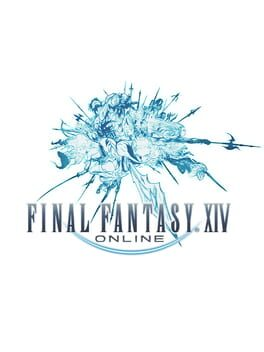
▲
1
▼
According to Final Fantasy XVI's creative director/scenario writer Kazutoyo Maehiro and the game's producer Naoki Yoshida in a 2023 IGN article, in the Japanese version of the game, Chocobos are referred to as "uma" (馬), which is the Japanese word for "horse". Initially, neither Maehiro or director Hiroshi Takai considered using Chocobos in the game at all, because according to Maehiro, "when thinking about the story, the worldview, and a feeling of reality, a horse just looked better as a silhouette when straddled." Yoshida elaborated that horses fit better when building a world based on European medieval gothic fantasy:
Despite this explanation, Yoshida still instructed the development team to include Chocobos in the game in an effort to stay faithful to the series' long-standing elements. The Japanese version also still refers to them as Chocobos and horses interchangeably. Maehiro stated that he tried to tie the Chocobos into the history of Valisthea through partnerships with its people, in an effort to create something culturally familiar. He justified this by stating that in Japanese, they "sometimes refer to a car as 'legs', or not having a car as 'having no legs'; and in the same way, the people of Valisthea refer to Chocobos as 'horses'." He subsequently implied that actual horses may exist in other regions in the game's world, but that in Valisthea, Chocobos function as their regional equivalent to actual horses. Localization director Michael-Christopher Koji Fox also stated that he decided not to refer to Chocobos as horses in the game's English translation:
The terminology in the decision to refer to Chocobos as horses resulted in confused or joking reactions from Japanese players online, since this is not the first time Chocobos were referred to as horses in the series. In the original 2010 release of Final Fantasy XIV Online, the kanji characters for horse and bird (鳥 , "tori") were used together as "horsebird" (馬鳥) in the Japanese script in place of the standard katakana for Chocobo (チョコボ). At release, several other katakana terms were replaced with kanji symbols, with some terms existing in-game as written in Chinese rather than Japanese. Square Enix offered several conflicting explanations for the changes, including the need to "build atmosphere", and to consolidate terminology with the then-upcoming Chinese-language release, but these did not help as the change caused an uproar among Japanese players, resulting in Chocobo being reincorporated into the Japanese version's script in a future update. The controversy would later be referenced in the 2013 reboot of Final Fantasy XIV Online through a piece of dialogue spoken by Golden Uma Doshin, a Quest NPC found in Central Shroud as part of the limited time quest "Turn Around, Beautiful":
"In reality, horses are animals that can build strong partnerships with humans. We share a long history with them. Weapons involving horses also appear more realistic. Especially with the improvement in graphics being so remarkable, there is a chance that it becomes difficult to lie or deceive viewers, in a good way, and as a result, may impair the sense of immersion. Chocobos are based on birds, which first of all means they don’t stand on four legs, and that makes them more difficult to mount. When compared with a horse it might not feel as stable to ride a Chocobo, and their wings aren’t big and strong enough to take you to the sky, either."
Despite this explanation, Yoshida still instructed the development team to include Chocobos in the game in an effort to stay faithful to the series' long-standing elements. The Japanese version also still refers to them as Chocobos and horses interchangeably. Maehiro stated that he tried to tie the Chocobos into the history of Valisthea through partnerships with its people, in an effort to create something culturally familiar. He justified this by stating that in Japanese, they "sometimes refer to a car as 'legs', or not having a car as 'having no legs'; and in the same way, the people of Valisthea refer to Chocobos as 'horses'." He subsequently implied that actual horses may exist in other regions in the game's world, but that in Valisthea, Chocobos function as their regional equivalent to actual horses. Localization director Michael-Christopher Koji Fox also stated that he decided not to refer to Chocobos as horses in the game's English translation:
"I remember seeing it in the script and remarking, 'You're saying 'horse' here. You're sure that's OK?' But Maehiro said, 'Yes, this is what we wanted to do.' In English, we never really wanted to use the word horse, because Chocobos and horses are entirely different. It just sounded weird to us in that sense. But we do use words like 'steed'; and I think 'courser' [a medieval word for a warhorse,] as well."
The terminology in the decision to refer to Chocobos as horses resulted in confused or joking reactions from Japanese players online, since this is not the first time Chocobos were referred to as horses in the series. In the original 2010 release of Final Fantasy XIV Online, the kanji characters for horse and bird (鳥 , "tori") were used together as "horsebird" (馬鳥) in the Japanese script in place of the standard katakana for Chocobo (チョコボ). At release, several other katakana terms were replaced with kanji symbols, with some terms existing in-game as written in Chinese rather than Japanese. Square Enix offered several conflicting explanations for the changes, including the need to "build atmosphere", and to consolidate terminology with the then-upcoming Chinese-language release, but these did not help as the change caused an uproar among Japanese players, resulting in Chocobo being reincorporated into the Japanese version's script in a future update. The controversy would later be referenced in the 2013 reboot of Final Fantasy XIV Online through a piece of dialogue spoken by Golden Uma Doshin, a Quest NPC found in Central Shroud as part of the limited time quest "Turn Around, Beautiful":
"Chocobo... chocobo... chocobo... Nothing but horsebirds in this stable. A sight to disturb Eastern eyes, to be sure."
IGN: Chocobos are Called 'Horses' in the Japanese Version of Final Fantasy XVI:
https://www.ign.com/articles/chocobos-are-called-horses-in-final-fantasy-xvi-japanese-version
Censored Gaming: In The Japanese Version Of Final Fantasy XVI, Chocobos Are Called "Horses":
https://www.youtube.com/watch?v=7AT-QpAwkqQ
Destructoid: Final Fantasy XIV text issue turns Chocobos to Horsebirds:
https://www.destructoid.com/final-fantasy-xiv-text-issue-turns-chocobos-to-horsebirds/
Final Fantasy XIV Online wiki articles:
https://ffxiv.consolegameswiki.com/wiki/Golden_Uma_Doshin
https://ffxiv.consolegameswiki.com/wiki/Turn_Around,_Beautiful
https://www.ign.com/articles/chocobos-are-called-horses-in-final-fantasy-xvi-japanese-version
Censored Gaming: In The Japanese Version Of Final Fantasy XVI, Chocobos Are Called "Horses":
https://www.youtube.com/watch?v=7AT-QpAwkqQ
Destructoid: Final Fantasy XIV text issue turns Chocobos to Horsebirds:
https://www.destructoid.com/final-fantasy-xiv-text-issue-turns-chocobos-to-horsebirds/
Final Fantasy XIV Online wiki articles:
https://ffxiv.consolegameswiki.com/wiki/Golden_Uma_Doshin
https://ffxiv.consolegameswiki.com/wiki/Turn_Around,_Beautiful
| keyboard_double_arrow_leftFirst keyboard_arrow_leftPrev | Page 1 of 3 | Nextkeyboard_arrow_right Lastkeyboard_double_arrow_right |